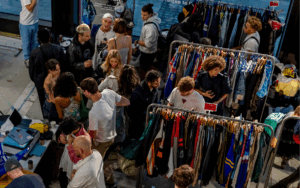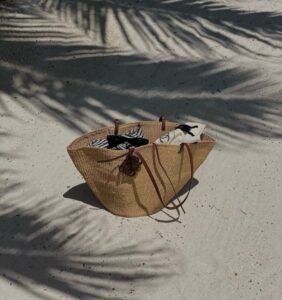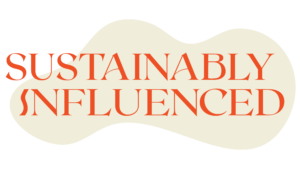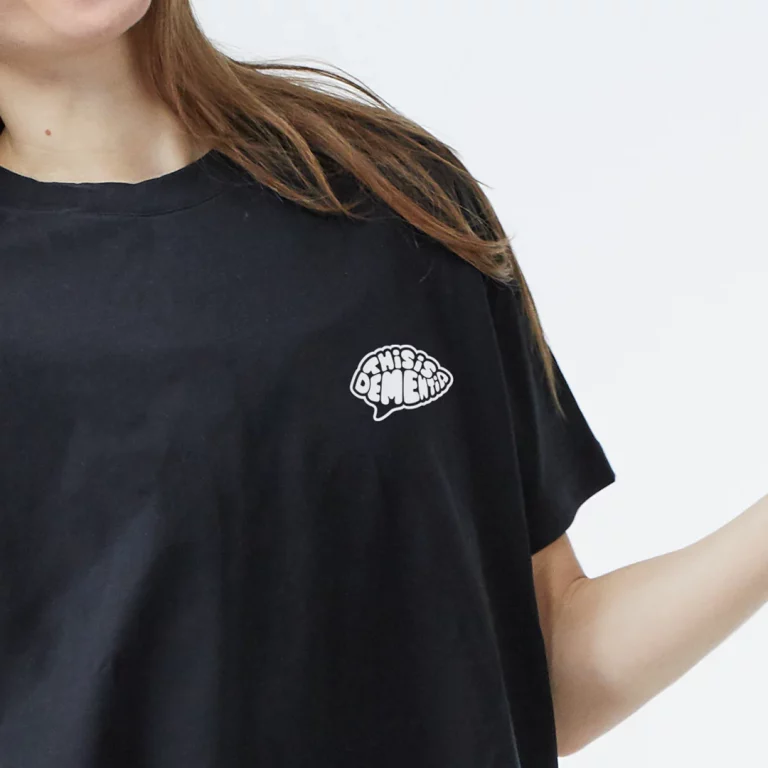Introducing This is Dementia: Raising Awareness, Supporting Families and Embracing Sustainability
Lizzie Perry has poured her passion into the world of luxury fashion as a dedicated product developer. Recognizing the urgent environmental challenges we face today, she has embraced a deep commitment to sustainability, believing that beauty should never come at the expense of our planet.
Driven by a genuine desire to make a meaningful difference, Lizzie founded This is Dementia three years ago. This social enterprise has become her true passion project, serving as a powerful platform to support individuals and families impacted by dementia. Through This is Dementia, Lizzie has cultivated an inclusive community, raising funds for charity through the offering of sustainably manufactured products centered around dementia awareness.
Did you know that almost 1 million people in the UK have dementia? That number is only expected to increase, with 1 in 3 people predicted to develop dementia in their lifetime. It’s a startling statistic, but what’s even more surprising is that dementia is the leading cause of death in England. At This is Dementia, we focus on the impact of young onset dementia, which occurs when someone is diagnosed before the age of 65. It’s rare, but not uncommon, and it can have a devastating effect on individuals and their families.
I know this first-hand because when my dad was 58, he was diagnosed with frontal temporal lobe dementia. It’s been 5 years since his diagnosis, and now my dad is bed-bound and requires round-the-clock care from my mum and carers.
Being diagnosed with young onset dementia can be particularly challenging because it often happens when you’re still working and supporting a family. You may have a mortgage or other financial commitments to manage, and you may need to retire earlier than planned because you’re no longer able to work.
Dementia affects everyone differently, and for my dad, it was staring and losing his ability to communicate. This led to many uncomfortable situations in public, but after creating a t-shirt with a message explaining his condition, the public’s perception towards him changed for the better. This success inspired me to create This is Dementia, a social enterprise that sells products with dementia related designs and donates all proceeds to charity. Through the project, I raise awareness and spark conversations surrounding young onset dementia. We have sold to customers all over the world and donated over £12,000 to Dementia UK. As someone who struggled to find support when my dad was diagnosed, it’s been incredibly rewarding to create a platform where others in similar situations can reach out for guidance and support.
As a product developer in the fashion industry, I am constantly reminded of the environmental impact of fashion and the amount of waste it can generate. When I started TID, I made a conscious decision to avoid creating waste where possible and focus on circularity principles when it came to manufacturing. I was very fortunate to partner with Burberry and various mills across Portugal who donated excess raw material to create our TID t-shirts. To me, it was crucial that we only used this excess material, even if it meant we couldn’t always fulfil certain customer requests that could easily have been met by ordering new material. After the success of the t-shirts, I expanded the product range to include home and lifestyle products, such as mugs. I was committed to avoiding waste in this area as well, so I repurposed mugs that would have otherwise ended up in landfill. Creating sustainable products is incredibly important to me, and I’m proud that the TID products are not only great designs, but also environmentally conscious.
The fashion industry has a long way to go when it comes to sustainability, but it’s encouraging to see that political and economic unions such as the EU are taking steps towards a more circular economy through their new circular economy action plan. This will not only reduce waste, but also help combat fast fashion, which is notorious for it’s negative environmental impact. At TID, I’m trying to do my part by using excess fabric for the t-shirts. It’s a win-win situation: we’re providing customers with a product that is both environmentally friendly and socially beneficial through our dementia targeted designs, while also proving that you can make a difference without compromising the health of our planet.
To end, young onset dementia can have a devastating impact on individuals and their families, and more awareness is needed to support those affected. This is Dementia hopes to continue having these conversations and breaking down barriers, whilst continuing to be strongly committed to sustainability and the creation of environmentally conscious products.
Shop the full range here.
Share This Story
Related Posts

What’s Good in June
What’s Good in June In Partnership With In Good Company Image Credit: Fashion District Festival June is officially the moment London clicks into summer. The

The Responsible Summer Essentials We Are Definitely Taking In Our Carry On
The Responsible Summer Essentials We Are Definitely Taking In Our Carry On Summer is officially loading and that can only mean one thing: carry-on bags

What’s Good in May
What’s Good in May In Partnership With In Good Company Image Credit: Black Culture Market If April was a warm-up, May is full-on go time.

It’s Official—These Are the Best Sustainable Beauty Treatments in London
Our editors tried and tested luxury beauty hotspots.


